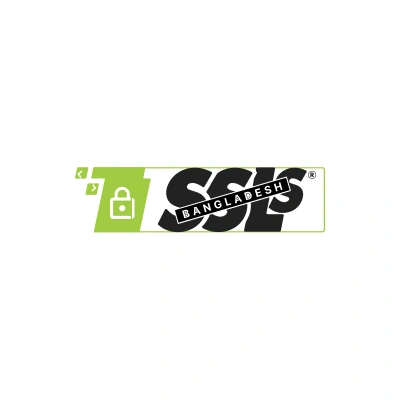Understanding SSL Certificates
Secure Sockets Layer (SSL) certificates are essential for establishing a secure connection between your website and its visitors. By encrypting data transmitted between your server and users, SSL certificates protect sensitive information, such as login credentials and payment details, ensuring privacy and security online.
What is an SSL Certificate?
An SSL certificate is a digital security protocol that encrypts data between your server and visitors. It’s crucial for protecting sensitive information and establishing trust online. Learn more about how SSL certificates work and their importance in website security.
Types of SSL Certificates
Domain Validated (DV) Certificates:
- Overview: DV certificates provide basic encryption and are the most straightforward type of SSL certificate to obtain.
- Use Cases: Ideal for small websites and blogs where basic encryption is sufficient.
- Validation Process: Verifies domain ownership via email or DNS record.
Organization Validated (OV) Certificates:
- Overview: OV certificates offer a higher level of security and trust by verifying the organization's details.
- Use Cases: Suitable for businesses and organizations seeking to establish credibility and trust with users.
- Validation Process: Includes domain ownership verification and checks the legitimacy of the organization.
Organization Validated (OV) Certificates:
- Overview: EV certificates provide the highest level of security and are identified by a green address bar in browsers.
- Use Cases: Best for e-commerce sites and businesses requiring maximum trust and security.
- Validation Process: Involves thorough vetting of the organization’s identity and legal status.
Wildcard SSL Certificates:
- Overview: Allows you to secure a primary domain and unlimited subdomains under a single certificate.
- Use Cases: Ideal for businesses with multiple subdomains needing encryption.
- Benefits: Cost-effective and simplifies SSL management.
Multi-Domain (SAN) SSL Certificates:
- Overview: Secures multiple domains and subdomains with a single certificate.
- Use Cases: Suitable for organizations with various domains requiring unified security.
- Benefits: Streamlines SSL management and reduces costs.
How SSL Certificates Work
SSL certificates work by creating a secure, encrypted connection between your website and your visitors. When a user connects to your site, the SSL certificate activates a secure session, ensuring that data transmitted is encrypted and protected from potential threats.
- Encryption: Data transmitted between the user and server is encrypted using cryptographic algorithms, making it unreadable to unauthorized parties.
- Authentication: SSL certificates validate the identity of the website, ensuring users that they are connecting to a legitimate site.
- Data Integrity: SSL certificates ensure that the data exchanged has not been tampered with during transmission.
Benefits of SSL Certificates
- Enhanced Security: Protects sensitive data and prevents unauthorized access.
- Increased Trust: Displays trust indicators such as the padlock icon and HTTPS in the browser address bar.
- SEO Advantage: Search engines like Google give preference to sites with SSL certificates, improving search rankings.
- Compliance: Meets industry standards and regulations for data protection.
How to Choose the Right SSL Certificate
Choosing the right SSL certificate depends on various factors, including the size of your business, the number of domains you need to secure, and your security requirements. Consider the following:
- Number of Domains: If you have multiple domains or subdomains, consider Wildcard or Multi-Domain SSL certificates.
- Type of Business: For e-commerce or sensitive transactions, EV certificates provide the highest level of security.
- Budget: Evaluate the cost versus the level of validation and security required.
How to Purchase an SSL Certificate
- Select a Certificate: Choose the type of SSL certificate that best suits your needs.
- Complete the Purchase: Visit ssls.com.bd to select and purchase your SSL certificate.
- Validation: Follow the instructions to complete the validation process.
- Installation: Install the SSL certificate on your server, or use our installation services for assistance.
SSL Certificate Installation Guide
Step-by-Step Installation
- Follow our detailed guide on how to install SSL certificates on your server. This section includes screenshots and easy-to-follow instructions to ensure a smooth installation process.
Common Installation Issues and Fixes
- Troubleshoot common issues with SSL installation and find solutions to common problems encountered during setup.
SSL Certificate Management
Ongoing Management and Renewal
- Learn how to manage your SSL certificates effectively, including tracking expiration dates and renewing certificates before they expire. Regular maintenance ensures continuous protection for your website.
SSL Certificate Best Practices
- Implement best practices for SSL certificate management to maintain optimal security. This includes regular updates, monitoring, and compliance with security standards.
SSL Certificate Additional Resources
Guides and Tutorials
- Access a library of guides, tutorials, and articles on SSL certificates and website security. Our resources are designed to help you stay informed and make the most of your SSL certificates.
Support and Assistance
- Find out how to get help with SSL certificate-related questions and issues. Contact our support team for personalized assistance and expert advice.
For additional information on how our SSL certificates can benefit your business in Bangladesh, or to discuss your specific needs, please contact us or visit our SSL Certificate Products page.
